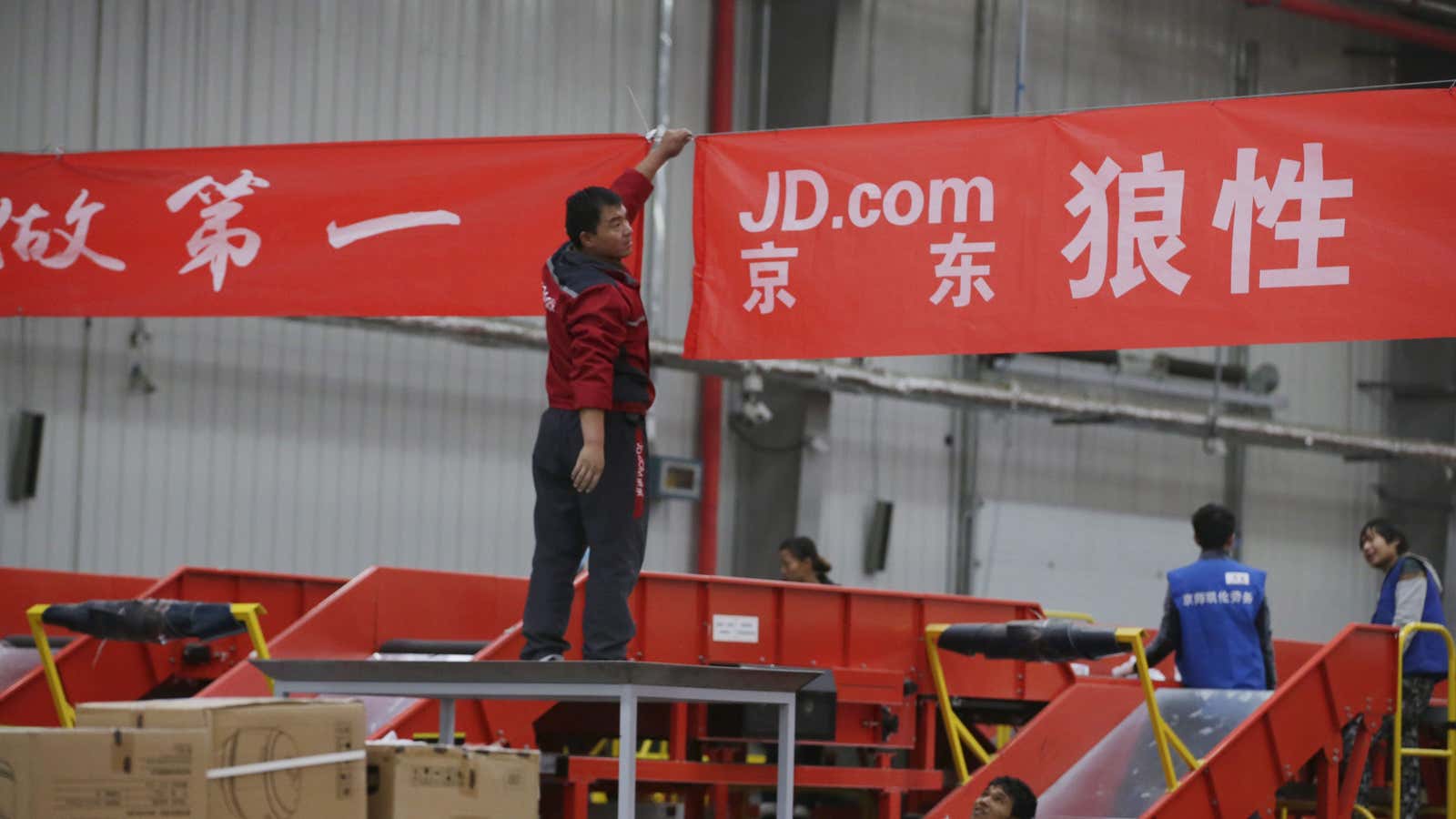Among the most sought-after places to work for the country’s top talent, China’s tech giants appear to be carrying out layoffs amid a slowing economy.
Since late last year, news of cutbacks at big Chinese companies began surfacing on the internet as employees took their discussions to online forums, even as companies often denied the reports. That drew the attention of China’s state economy planner, the National Development and Reform Committee (NDRC). A spokesperson for the NDRC said in late January that no massive layoffs (link in Chinese) were expected in the internet sector after the government body held a series of talks with internet companies. Yet online discussions continue to suggest otherwise.
A compilation of job cuts (link in Chinese) at more than two dozen tech companies has been shared on widely on microblog Weibo and messaging app WeChat in recent days giving people a sense of the impact of a slowdown that’s also been recorded in monthly numbers like today’s factory activity gauge, which fell to its lowest in three years. The origin of the list is unclear.
JD, the second biggest e-commerce site after Alibaba, is reportedly planning to let go of around 10% of its senior executives this year, financial outlet Yicai reported last week, citing company sources. There are around 80 to 100 people (link in Chinese) belonging to the senior executives’ band at JD, according to business magazine China Entrepreneur, which means the actual numbers being reduced are relatively small. Responding to queries from Quartz, a JD spokesperson said it isn’t having layoffs and is instead “maximizing resources to provide equal opportunities for qualified talent.” The firm said it will hire around 15,000 new employees this year, and two-thirds of those will be logistics staff such as couriers and warehouse staff, while the remainder will be in retail.
Didi is reportedly letting go of 15% of its workforce, or about 2,000 people this year, news outlet CNBC said earlier this month, citing an unnamed source. CEO Cheng Wei said at an internal meeting (link in Chinese) that Didi’s preparing for difficult times, according to Chinese news outlet Huanqiu. The company plans to hire 2,500 this year to keep its employee number at 13,000 at the end of the year, the same level as in 2018. The new hires will focus on safety and driver managements—two key areas that saw Didi face a huge backlash in 2018 after female passengers were murdered by drivers of its hitchhiking Hitch service. The firm saw a loss of 10.9 billion yuan ($1.6 billion) in 2018, according to technology news media 36kr (link in Chinese), far higher than the firm’s 2.5 billion yuan loss a year earlier. Didi declined to comment on queries about staffing.
A former employee who declined to be named told Quartz that in December, Zhihu, an almost decade-old, Quora-like platform, had also fired 400 people, or 25% of its total workforce. The former employee left on his own said Zhihu has taken out even well-performing teams and employees. “The company calls the layoffs ‘optimizations,’ which is a common word used among the internet companies as an excuse,” said the former employee. Zhihu didn’t respond to queries from Quartz about staffing.
In the same month, Qudian, a New York-listed online-lending company also laid off around 400 people (link in Chinese), according to an anonymous company staffer. Those number has included those from two platforms Qudian just rolled out in 2018—its auto-financing platform Dabai and SAME, a social app (link in Chinese) to connect university alumni. Qudian didn’t respond to a comment request from Quartz.
Meanwhile, in late December, a staffer told news outlet Cryptoglobe that cryptocurrency giant Bitmain —which has also been hurt by a regulatory crackdown in China on cryptocurrency since last year—that the firm would cut half its staff. That would mean letting go 1,500 people.
Responding perhaps to government concern, a few companies have announced they won’t have layoffs this year, including Alibaba, which said it will continue to recruit employees. The firm has a total of around 66,000 employees (p.186) as of March 2018, according to its latest annual report.
It’s not just internet firms tightening employment. Amid a slowing auto market in China, American carmaker Ford’s joint-venture with Chinese carmaker Changan has also begun dismissing thousands of its 20,000 employees, the New York Times (paywall) reported yesterday (Feb. 27). Ford suffered an almost 37% sales drop in China due to a lack of new models, especially SUVs, for the market. Nigel Harris, president for the Changan-Ford joint venture declined to comment on the layoff details to NYT.
More broadly, factory data out today showed the manufacturers were also continuing to cut jobs. And internet searches for the term “layoff” on China’s internet have surged in 2018, which is notable since similar search spikes have taken place at the time of other major retrenchments, according to data from Hong Kong-based financial firm Gavekal Dragonomics.
